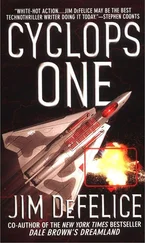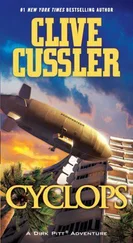“And you say this to me who has loved you like a father?” cried Maestro nearly in tears. “You ungrateful brat!”
Melkior liked the show of Maestro’s noble nature, he nudged the student in a plea to relent, to make up. … Maestro didn’t mean it like that , he’s a good man at heart. … In the end the student flashed a conciliatory smile; he thought he had got his satisfaction. All the same he would not look at Maestro; he kept glancing at his mentor Hasdrubalson, seeking advice or possibly refuge.
“Well, what are you waiting for, mediate, Chicory the Inexorable!” cried Ugo from the other end of the table. “Can’t you see your help is expected?”
Chicory blinked undecidedly, his cheeks twitching in nervousness, while all the others smiled slyly into their hands.
“Well, Maestro is no Turkish potentate,” said Chicory, “you can always speak to him directly.”
“As far as I’m concerned …” said the student like a young lover in a Renaissance comedy, in the reconciliation scene.
“There, my boy: peace.” Maestro offered his index finger and the student eagerly took the entire hand. “You give him a finger and he takes the whole …” Maestro quipped. “No, not like that: you put your index finger on top of mine and it’s peace, peace everlasting …”
And so they did: index finger to index finger, and their two hands flew off like birds linked by a kiss. And Maestro kissed him on the cheek, paternally.
And the student returned the kiss.
“And now, my boy, tell us what you were going to say,” Maestro said with much kindness. “What did Hamlet say of Alexander the Great?”
The cheeks of everyone at the table were bulging; Ugo was on the point of bursting, but the student noticed nothing, he was intent on airing his knowledge:
“He said we could trace in our imagination the dust of Alexander and finally find it corking a beer barrel.”
There was a blast of long-brewing laughter. The student had walked straight into it …
“What are you laughing at, you morons?” said Maestro in mock anger. “He got it right, didn’t he? Plugging a beer barrel, right? Alexander the Great as the great plugger, that’s the point, isn’t it, my boy?”
But the student had already jumped to his feet and fled. They shouted after him, “Come back, it was only a joke!” Chicory actually ran after him, but it was no use, the insult had been too great.
From all around came loud applause and shouts of “Bravo!”; at the bar, Thénardier’s two assistants gave Maestro ovations, banging on glass, crazed with mirth. Ugo leaned across the table and showered Maestro with congratulations and even kisses on his greasy and moldy head.
“What a show!” marveled Ugo. “The doctor subtilis! Not even Saint Thomas Aquinas could have played it in so refined a …”
“Thomas Aquinas was doctor angelicus,” Maestro pontificated, “sed tu es doctor asinus! You ignorant ass! All of you have driven that bright child away, and he had so much more to tell us! Now you’re driving away my dear Eustachius. You’re right, blessed Eustachius, this is insufferable, they are behaving like high school youngsters at a school dance. Go if you like, I will not take it amiss.”
Melkior had indeed begun to fidget on his chair: he was about to leave.
He, too, had been hoodwinked. He had been taken in by Maestro’s “show of benevolence,” he’d helped to “set up” the student. … The boy is now roaming the streets, bitterly regretting his gullibility. Why didn’t I belt the man one right away? No, I had to swallow his “peace-peace everlasting” rubbish, ha, ha … He mocked himself and loathed the world. The poison had taken effect …
Before Melkior could so much as come unstuck from his chair, Ugo grabbed him by the neck. “Ah, sacré bleu!” he cried, as if he had nabbed a spy behind a door.
“Let go of me! What the hell do you think you’re doing?”
“Doing?” Ugo smirked, not letting go. “Nothing, this is expressing my will by the use of force. Violence! You’ve been studying us all night like a shrink with a pack of pickled peckers! Well, that doesn’t fly! Sit right back down and ask forgiveness from the magistral personage of this symposium of Concretist poetry! You’d ignore creativity, would you?”
“I’ve been listening attentively,” stammered Melkior. “But now I must be off, I’ve got work to do.”
“Work!” Ugo pulled a pious face. “Did you hear, Oh ye faithful, that most sacred of words? Approach and prostrate yourselves! The Lord our God Himself invented it and said to Adam (after that ploy with the apple), ‘In the sweat of thy face shalt thou eat bread.’ He stuck a fig leaf on him and booted him from Paradise. That was the end of easy living in the bosom of the Earth. Time to work. And then our forefather, whom this did irk, invented the famous ode to work: cabbages are tasty cabbages are yummy, grow ye cabbages and never go ye hungry. Therefore, brethren, grow ye cabbages and fear not.”
“As did your esteemed father — he raised a genuinely exemplary head of cabbage!” Maestro put in.
“Thank you for the compliment,” Ugo bowed. But he was taken aback by Maestro’s interjection; he therefore went after Melkior again.
“It’s a shame, oh sociable Eustachius,” he turned him around and spoke into his face. “It’s a shame for a Parampionic veteran such as yourself to shut himself in his secret little lab and day and night distill the extract of a most corrosive antimilitarist outlook, one which in further chemical processing might even be described as seditious.”
“Ugo!” Melkior pleaded in a hot whisper.
“He can be seen in broad daylight,” Ugo went on cruelly, “stepping onto the invalid’s weighing machine on the street corner with the secret mission of controlling the weight of his irreplaceable body, with particular attention to certain famous military regulations. For seven years, in his head, he has been nurturing, fertilizing, watering, weeding his sweet little cabbage patch: how to render inaccessible to the Kingdom his body, which in view of its glory is fully entitled to it, as is borne out by all of history. He has, among other things, a poem which sets it all out in a poetic manner. I must confess I don’t know its title, but it does not really need a title — if it has one at all, am I right, Eustachius?”
“Ugo, please,” whispered Melkior, trembling, “for God’s sake stop acting like a fool!”
“What’s the matter?” Ugo mused. “Why, the poem’s quite good. A bit old-fashioned, perhaps. Listen:
Begone now, leave me be, ’tis solitude I need
softly to approach the grass …”
“Stop!” Melkior shrieked in desperation and wrenched free of Ugo’s grip. “You’re not a man, you’re a cur!” he added, fending off Ugo’s hands, which were reaching to keep him there. When he closed the door from the outside, Thénardier’s bell sobbed after him.
“Pity,” said Maestro thoughtfully. “Just when we were set up for a splendid evening. Tell you what, Ugo: why don’t U-go and u-be-gone, you goon.”
White all around … and a tinge of illness. The quiet, roomy terrace of an Alpine sanitarium for the consumptive. He did not want to say “tuberculin.” Deep down he feared the word. A view of mountain lakes and glaciers. A glass of milk on a small white table. He, reclining on a chaise longue, the chronicle of some thirty-year, three-hundred-year, three-thousand-year war in his hands. A little farther off down the terrace, also resting, a gold-haired and pale-faced one, a consumptive girl reading. … At this point somebody else would write that she was reading The Sorrows of Young Werther or Adolphe or The Torrents of Spring; well, just to show them make it a book by Kumičić, Jelka’s Sprig of Basil , or even Chance by the same author. The sweet banality of a delusion … The pretty golden girl brushing away a dainty tear over a passage here and there and coughing demurely. Poor thing. Everything pale, sick, sad … Banal! Intentionally banal!
Читать дальше












